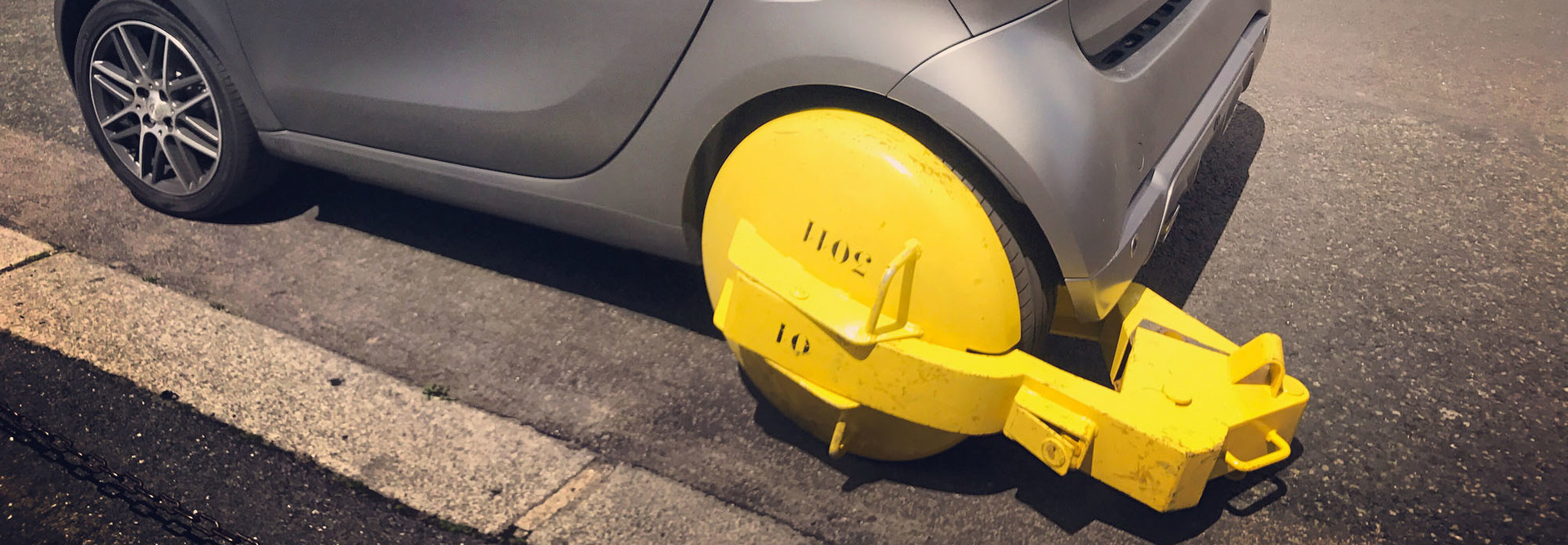Parking Enforcement Tech Clamps Down on Violations
Meter maids patrolling the streets could soon be a thing of the past. Many cities are stocking up on smart parking technologies that aim to more easily track and enforce parking violations.
While many cities are also installing smart meters and other tech to make the best use of space, in many cases cities pull in more revenue from parking tickets than from the meters themselves — but only if violations are spotted in time and paid accordingly.
"When somebody isn't paying their ticket, they're actually taking money away from police, from fire, from street paving," Los Angeles City Controller Ron Galperin told NBC4.
For this reason, Los Angeles and other cities are putting away the tire chalk and are turning to connected technologies.
LA SmartBoots Simplify Fines
On July 27, the Los Angeles Department of Transportation began deploying high-tech Paylock SmartBoots in order to collect more than $21 million in unpaid fines. Overall, the LADOT will deploy more than 300 SmartBoots across the city within the coming year, ramping up the deployment if it proves successful, according to Techwire.net.
The boot is placed on cars with upwards of five parking tickets and can be removed once drivers pay their parking fees, which can now be done by scanning a QR code and paying from their smartphones, in addition to traditional methods, such as paying over the phone or in person. LADOT then provides the drivers with a six-digit code that will unlock the boot, after which they have 24 hours to return it.
"People have responded a lot more positively to them because they can be on their way," Oliver Hou, an engineering associate at LADOT, told Smart Cities Dive. "Instead of three hours, it’s three minutes."
The SmartBoot isn’t infallible, with a few savvy drivers figuring out how to unlock them, but that’s not exactly new.
"People always find a way," Hou said. Moreover, the SmartBoot is less likely to be vandalized than traditional ones.
"People have an option that they didn’t have before," Matt Silverman, executive vice president at PayLock, told Smart Cities Dive. "You change the decision-making model in people’s mind."
Coeur d’Alene Calls on License-Plate Tracking Tech
Instead of chalk, several cities are turning to technology that tracks license plates and automates the process of identifying when a car has overstayed its welcome.
Coeur d’Alene, Idaho, was equipped with the technology this past summer, which tracks whether or not a car has been moved at least one block from its previous location after the free parking limit has expired. If not, it automatically alerts a Coeur d’Alene parking enforcement employee, who issues a ticket to the vehicle’s driver.
Ultimately, the system helps the city more efficiently manage time limits, according to KREM2.
Mobile Tech Keeps Parking Officers Safe
Meanwhile, in Riverhead, N.Y., the city is implementing a mobile ticketing system aimed at expediting the ticketing process for officers and payments for violators.
“We don’t want to be known as the ticket-writing capital of Eastern Long Island but we do have to enforce what we have,” Councilman Tim Hubbard, the town’s parking district liaison, told RiverheadLOCAL. “We can put all the restrictions we want but if we’re not enforcing them, it doesn’t do any good.”
Officers are equipped with smartphones programmed with the violation software. The system allows each officer to take a picture of the car and enter the violation, at which point its location is automatically recorded. Violators can view photos of the incident online as well as pay fines.
“Nobody likes to get a ticket — we understand that, but unfortunately there are some crazy people out there,” Hubbard told RiverheadLOCAL, adding that the new technology will allow the officer to “write the ticket and move on” and “allows him to have less confrontation with the vehicle owner.”









